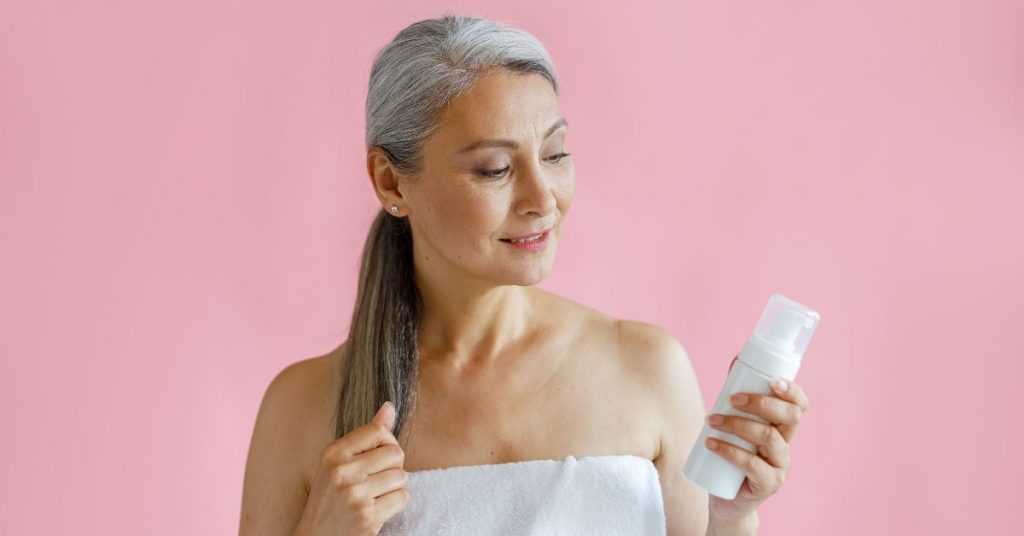Aging is a natural and normal process. Unless proven otherwise, every person is a natural part of it. In this article, we won’t try to give you anti-aging recommendations to reverse the cycle of life, but simple gestures to accompany it at best! Learn caring for mature skin.

What is mature skin?
It can be difficult to provide an accurate age estimate. In point of fact, the rate at which the skin matures depends on a variety of factors. Everything hinges on the harmony of your hormones or the state of your health. Around that age, it begins to occur. To determine whether or not you fit into this group, consider the following list of its primary characteristics:
- Because of the significant reduction in both sebum secretion and the body’s natural production of hyaluronic acid, you may have noticed that your skin has become significantly drier.
- A condition in which the skin develops uneven pigmentation as a result of prolonged exposure to oxidants such the sun, blue light screens, alcohol, and tobacco. It is known as lentigo, sometimes known as brown spots.
- The skin becomes a bit less taut as a result of a slowdown in the process of cell renewal and a decline in the release of estrogen, which is responsible for the formation of collagen and elastin. This might cause your furrows, also known as wrinkles, to become more noticeable. The foundation of radiant skin is a healthy lifestyle.
The genes that were passed down to us from our ancestors account for a sizeable portion of our skin’s quality, but the way we live our lives has a far more substantial impact. In point of fact, the sun is solely accountable for 80 percent of the aging process of the skin.
However, it is possible to increase the resistance capability of our cells by choosing a diet that is varied and balanced and that is rich in vitamins, proteins, trace elements, and fatty acids. This will allow your body and your skin to protect themselves against external aggressions.
The impacts of time are accelerated or deepened when stress and lack of sleep are present. Because our cells repair when we sleep, a lack of sleep can speed up the aging process. Because of stress, our bodies produce more cortisol, which in turn causes our skin barrier to become more compromised.
Caring for mature skin: the ideal skincare routine, explained step by step
In addition to leading a healthy lifestyle, engaging in aesthetic care can be beneficial for caring for mature skin and maintening its optimal level of hydration, safeguarding it, and invigorating the production of its own protective layers.
Antioxidants
Because of their role in the production of collagen, they not only protect us but also serve as a shield for our skin. Ascorbic acid, more commonly known as vitamin C, is the most effective anti-oxidant.
Retinol
It is a type of Vitamin A, which has been shown to be helpful in reversing the effects of time on the skin, including the appearance of wrinkles, hyperpigmentation, and pores. It does a good job of stimulating the renewal of cells.
